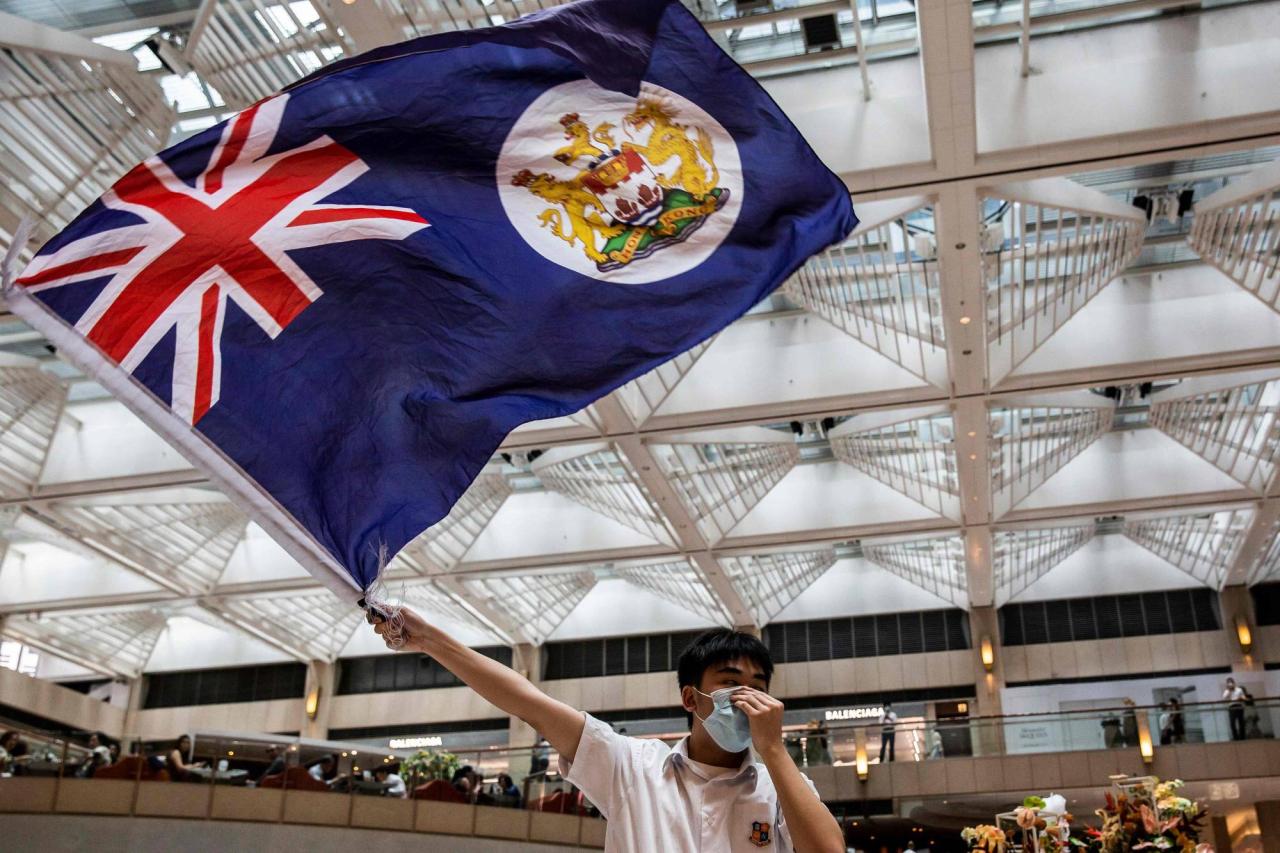
Britain is a Home But Not a Haven for Hong Kongers
Britain is a home but not a haven for Hong Kongers – a statement that encapsulates the complex reality faced by many who relocated after the 2019 protests and subsequent changes in Hong Kong. While the UK offered a pathway to resettlement, the experience has been far from uniform, revealing a spectrum of challenges and triumphs. This journey explores the lives of Hong Kongers in Britain, examining their integration, the support systems (or lack thereof), and the profound emotional toll of leaving behind a homeland for an uncertain future.
From navigating the intricacies of the visa system and securing housing to finding employment and building new social networks, the path to establishing a life in Britain has presented significant hurdles. This post delves into the economic contributions of Hong Kongers, the impact on British society, and the political and legal frameworks that shape their experiences. Through personal narratives and insightful analysis, we aim to paint a nuanced picture of what it truly means to find a “home” while grappling with the absence of a true “haven.”
The Reality of Hong Kongers in Britain

The arrival of Hong Kongers in Britain following the 2019 protests and the implementation of the National Security Law has presented both opportunities and significant challenges. While the British government offered a pathway to citizenship, the reality on the ground is complex and varied, shaped by individual circumstances, visa schemes, and the inherent difficulties of integrating into a new society.
This section examines the lived experiences of Hong Kongers in Britain, focusing on key areas of their lives.
Living Conditions of Hong Kongers in Britain
Housing remains a major concern for many Hong Kongers. High rental costs in major cities like London and other popular destinations, coupled with competition for available properties, often force families into cramped living conditions or less desirable areas. Finding suitable accommodation that meets their needs and budget is a persistent struggle, particularly for those without strong support networks or significant financial resources.
Employment opportunities vary considerably. While many Hong Kongers possess high levels of education and professional skills, language barriers, recognition of qualifications, and the competitive British job market can create significant obstacles. Some find themselves underemployed, working in roles that do not reflect their qualifications, while others face long periods of unemployment. Social integration presents another set of challenges.
Cultural differences, language barriers, and the emotional toll of leaving their homeland can lead to feelings of isolation and loneliness. Building new social networks and adapting to British customs and social norms takes time and effort.
Accessing Public Services
Access to healthcare and education presents further difficulties. While the NHS provides healthcare services, navigating the system, understanding eligibility criteria, and overcoming language barriers can prove challenging. Similarly, access to higher education for Hong Kong students, while theoretically available, is often complicated by tuition fees, visa requirements, and competition for places. For those with children, securing places in suitable schools can be stressful, especially given the pressure on school places in many areas.
Experiences Across Different Visa Schemes, Britain is a home but not a haven for hong kongers
The experiences of Hong Kongers vary significantly depending on the visa scheme under which they arrived. Those arriving under the British National (Overseas) (BNO) visa scheme, for example, often face a longer and more complex process of resettlement compared to those who may have arrived under other visa routes with existing family ties in the UK. The level of support available, the speed of processing applications, and the initial access to services can differ considerably, leading to disparities in their integration journeys.
Support Systems Comparison
The following table compares the support systems available to Hong Kongers with those available to other immigrant groups in Britain. It’s important to note that support varies based on individual circumstances and eligibility criteria.
| Visa Type | Housing Support | Employment Assistance | Social Integration Programs |
|---|---|---|---|
| BNO Visa | Limited government support, reliance on private rental market; some charities offer assistance. | Job search assistance through government agencies and charities; varying levels of recognition for overseas qualifications. | English language courses, community integration programs offered by various charities and local councils; limited government-led programs specifically for BNO visa holders. |
| Other Immigrant Visas (e.g., Family Reunification) | Potential access to social housing depending on need and local council policies. | Access to government job centres and employment support programs. | Wider range of government-funded integration programs available to various immigrant groups. |
Economic and Social Impacts: Britain Is A Home But Not A Haven For Hong Kongers

The arrival of Hong Kongers in Britain following the 2020 National Security Law has undeniably reshaped the economic and social landscape of the country. Their skills, entrepreneurial spirit, and cultural contributions are interwoven into the fabric of British society, though the impact is complex and multifaceted, presenting both opportunities and challenges. Understanding these impacts is crucial for fostering successful integration and maximizing the benefits for both newcomers and existing communities.The economic contributions of Hong Kongers are significant and diverse.
Economic Contributions of Hong Kongers
Hong Kongers possess a wide range of skills and professional experience, often in high-demand sectors. Many are highly educated professionals, bringing expertise in finance, technology, and the creative industries. Their entrepreneurial drive has led to the establishment of numerous businesses, contributing to job creation and economic growth. For instance, many Hong Kong entrepreneurs have started restaurants, businesses providing services to the growing Hong Kong community, and technology startups, injecting innovation and competition into the British market.
While precise figures quantifying their overall economic contribution are difficult to obtain, anecdotal evidence and reports from various business organizations suggest a substantial and positive impact. The UK government’s own reports on immigration highlight the positive economic contributions of skilled migrants, a category that includes a significant number of Hong Kongers.
Impact on the British Housing Market and Infrastructure
The influx of Hong Kongers has placed additional pressure on the already strained British housing market, particularly in major cities like London. Increased demand has contributed to rising rental costs and competition for available properties. This impact is not unique to Hong Kongers, however, as the UK faces a broader housing shortage. The strain on infrastructure, including public transportation and services, is also noticeable in areas with high concentrations of new arrivals.
This necessitates increased investment in infrastructure to accommodate the growing population, a challenge that requires careful planning and resource allocation by local and national governments. One example of this pressure can be seen in the increased demand for schools and healthcare services in areas with significant Hong Konger populations.
Cultural Exchange and its Effects on British Society
The arrival of Hong Kongers has enriched British society through a vibrant cultural exchange. Hong Kong’s unique blend of Eastern and Western influences is evident in its cuisine, art, and cultural practices. The opening of numerous Hong Kong-style restaurants and cafes has introduced new culinary experiences to British consumers. Hong Kong artists and cultural groups have contributed to the diversity of the arts scene, offering unique perspectives and creative expressions.
This cultural exchange fosters understanding and appreciation for different cultures, contributing to a more inclusive and dynamic society. However, successful integration requires proactive efforts from both the host community and newcomers to ensure mutual respect and understanding.
Successful Integration and Community Building Initiatives
Numerous community organizations and initiatives have emerged to support the integration of Hong Kongers into British society. These initiatives focus on language support, job placement assistance, and cultural exchange programs. Many Hong Konger-led community groups have played a vital role in providing support networks and facilitating connections between newcomers and existing communities. These groups often organize events and activities that celebrate Hong Kong culture while also promoting interaction and understanding with British society.
The success of these initiatives depends on collaborative efforts between government agencies, community organizations, and individual Hong Kongers, all working together to create a welcoming and inclusive environment.
The journey of Hong Kongers in Britain is a testament to resilience, adaptability, and the enduring search for belonging. While the UK offers a new chapter, it’s crucial to acknowledge that the transition is far from seamless. The disparities in support, the struggles with integration, and the persistent longing for home highlight the need for a more comprehensive and compassionate approach to supporting this community.
Their stories remind us that building a new life abroad is a complex process, requiring not just practical support but also empathy and understanding. The dream of a haven, while perhaps not fully realized for all, is nonetheless a testament to their hope and determination in building a new future.
It’s bittersweet, really. Britain offers a home for Hong Kongers, a refuge from the upheaval back home, but the reality is far from idyllic. The complexities of navigating a new life are mirrored, in a way, by the geopolitical tensions elsewhere; seeing the escalating conflict visually represented in the Israel-Iran standoff in maps really highlights how fragile security can be anywhere.
It makes you appreciate the challenges faced by Hong Kongers building a new life, even in a place offering relative safety.
Finding a new home in Britain after leaving Hong Kong is bittersweet; it’s a place to rebuild, but the challenges are immense. It’s a far cry from the competitive landscape I knew back home, much like the current state of the running shoe market, where giants like Nike and Adidas are apparently losing their grip, as this article shows: nike and adidas are losing their lead in running shoes.
The fight for survival, for market share, mirrors the fight many Hong Kongers face in adapting to a new life, a new race, if you will.
It’s a complex situation for Hong Kongers in Britain; while they’ve found a home, the challenges are immense. The political instability brewing across the channel, as highlighted in this article about turmoil awaiting Michel Barnier’s premiership in France , reminds us that global stability isn’t a given. This uncertainty further complicates the already difficult journey for those seeking refuge and a better future, making Britain a home, but not yet a true haven.

